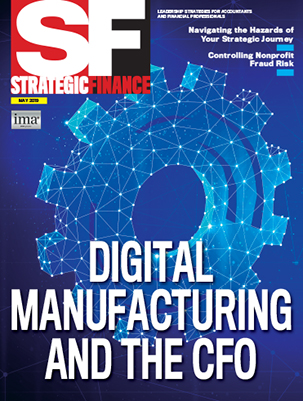Credibility, the fourth standard of the IMA Statement of Ethical Professional Practice, requires professional practice that shows you to be trustworthy, convincing, and reliable. In today’s global, data-driven culture, credibility is more important than ever for management accountants and finance professionals in team-based, integrative workplace environments. The credibility gap—a lack of trustworthiness or believability—is associated with reputational damage and often results in increased regulatory scrutiny, stricter laws and international standards, and profound changes in management practices.
To maintain your credibility, you must manage problematic situations and ethical quandaries from multiple perspectives and abide by the principle of transparency. As an accounting and finance professional, you should provide all relevant information that can reasonably be expected to influence intended users’ understanding of financial information, reports, or other documents.
Any delays or deficiencies in information or compliance with organizational policies and laws should be reported. Professionals should communicate limitations or constraints that would preclude reasonable ethical judgment or performance of an activity. The IMA Statement is very clear in stating that management accountants should communicate and disclose information about potential ethical violations, and if there are limitations or constraints on necessary disclosure, such data should be brought directly to senior management or the board.
GHOSN'S LOST CREDIBILITY
You must consistently work to build your credibility over the course of your career. If you suffer a lapse in ethics or commit an unethical act, it can all come crumbling down. Consider the recent case against Carlos Ghosn, former chairman and CEO of Nissan Motor Co. and the Renault-Nissan-Mitsubishi Alliance. Ghosn was removed from his position after being accused of false accounting, charging family vacations and residences to the company, and underreporting deferred compensation payments.
Japanese authorities allege that undisclosed payments to Ghosn totaling as much as $82 million over nine years contained IOU provisions that other board members didn’t know about. As a result, Ghosn went to prison. The investigations into his alleged misconduct are ongoing.
Ghosn had been among the most influential automotive executives in history. Prior to the discovery of his fraud, he’d gained significant credibility. He led the turnaround of two struggling automakers—Nissan and Groupe Renault—and built an alliance between them that persisted for two decades. The Alliance became one of the largest producers of cars in the world after acquiring a controlling 34% stake in Mitsubishi Motors in 2016. Yet by allegedly failing to report or underreporting his deferred compensation and company assets that he spent on his personal properties and vacations, Ghosn destroyed his credibility.
CREDIBLE COMMUNICATIONS
It’s important that items such as compensation and expenditures be approved by the board of directors and communicated or disclosed in their entirety to other interested constituencies. Communications should be honest and made with good intentions. Every organization’s highest-ranking officials, including the CFO and CEO, should work collaboratively with finance personnel on accounting issues and financial reporting.
On this point, the CEO and CFO should coordinate closely with other functions across the organization, such as human resources, investor relations, and corporate communications. The CEO and CFO are partners in driving initiatives to improve the company’s top- and bottom-line results. Communications should be fair, objective, and timely, and they should disclose any special provisions, perquisites, restrictions, or limitations, such as the size of payments for executive compensation plans and when they’ll occur.
Accountants and finance professionals often partner with other management-level executives and build alliances with competitors as Ghosn did with Nissan and Groupe Renault. They nurture relationships with other groups and individuals both inside and outside their organization, including third-party providers and affiliates. The credibility standard can be jeopardized by any party in the relationship, and management accountants must work continually to ensure that it’s upheld.
People define the core of who they are with and through emotions. As you work with and get to know individuals, their values will come to the surface. To understand another person’s value system, you need to view it from the inside, which requires imagination. Take a humanistic approach, and try to put yourself in the other person’s point of view. When you imagine views that differ from your own, your perspective broadens, and your ethical judgments potentially gain credibility.
Credibility depends on making good judgments factoring in various criteria, specifically standards or norms that guide evaluations of the quality of data. Triangulation of results can present opportunities for deeper insight into ethical problems based on analysis of essential criteria. Triangulation in qualitative inquiry involves gathering and analyzing multiple perspectives using diverse sources of data and alternative frameworks. Such actions make the outcome or decision more credible and help find the best fit for your organization.
In today’s data-driven work culture, all management accountants and finance professionals have much to gain from the application of a humanistic approach to the credibility standard whether they’re interacting with internal colleagues or external providers or competitors. Look to the evidence at hand, any ethical criteria—including those found in the IMA Statement—as well as your own moral compass to guide you. The bottom line: Strive to be an authentically good human being who behaves ethically in all situations. It will enhance your credibility with your peers.
IMA ETHICS HELPLINE
For clarification of how the IMA Statement of Ethical Professional Practice applies to your ethical dilemma, contact the IMA Ethics Helpline.
In the U.S. or Canada, dial (800) 245-1383. In other countries, dial the AT&T USA Direct Access Number from www.usa.att.com/traveler/index.jsp, then the above number.
The IMA Helpline is designed to provide clarification of provisions in the IMA Statement of Ethical Professional Practice, which contains suggestions on how to resolve ethical conflicts. The helpline cannot be considered a hotline to report specific suspected ethical violations.

May 2019



